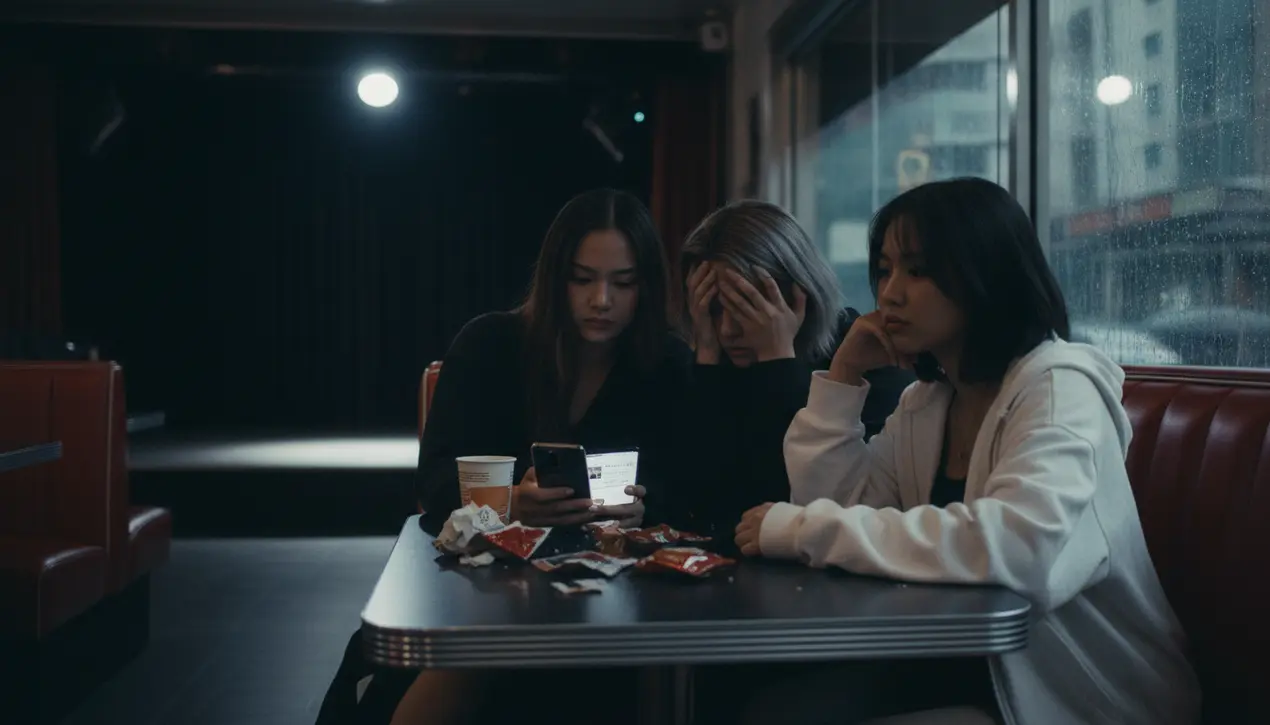
Entertainmentmusic
Malaysian girl group's video pulled after religious backlash.
AN
Anna Wright
2 hours ago7 min read
In a move that underscores the persistent tension between artistic expression and conservative moral codes in Malaysia, the girl group Dolla has been compelled to withdraw their latest music video for the track 'Question' following a fierce backlash from religious groups and a government minister. The controversy erupted over the performers' outfits, which were deemed overly suggestive, placing the trio—Sabronzo (Wan Sabrina Wan Rusli), Tabby (Tabitha Ariel Lam), and Angel (Angelina Chai)—squarely in the crosshairs of the country's mounting moral scrutiny, a burden that disproportionately falls upon women in the public eye.The video itself, a stylishly shot narrative set in a retro American-style diner where the members confront a cheating boyfriend, became a battleground not for its storyline of female empowerment and retribution, but for the perceived immodesty of its costuming. This incident is far from isolated; it fits into a deeply troubling pattern where female entertainers in Malaysia are routinely policed, their bodies and performances subjected to a level of public and governmental censure that their male counterparts rarely, if ever, face.It echoes the 2022 uproar surrounding local rock band Wings, whose concert was cancelled after similar complaints, and reflects a broader, global struggle where women's autonomy is constantly negotiated in the public sphere, from the hijab debates in Iran to the dress code enforcements in various educational institutions worldwide. The minister's intervention is particularly telling, highlighting how state power is often wielded to enforce a specific, patriarchal vision of morality, effectively silencing creative voices and limiting the scope of popular culture.This act of forced withdrawal is more than just a corporate decision; it is a capitulation to a vocal minority that dictates the boundaries of acceptability, ultimately stifling the diverse representation so desperately needed in a multicultural society. The consequences ripple outward, creating a chilling effect that will undoubtedly cause other artists, especially women, to self-censor, pre-emptively tailoring their art to avoid offending a conservative sensibility rather than exploring the full spectrum of human experience and emotion.This is not merely about a pop video; it is about who gets to tell stories and how they are allowed to tell them. The personal impact on the members of Dolla—the professional setback, the public shaming, the internal conflict between their artistic identity and imposed social norms—is a human cost often ignored in these debates. As long as such scrutiny remains selectively applied, the Malaysian entertainment industry, and society at large, will continue to grapple with a fundamental question: does a nation's cultural growth come from embracing a plurality of voices, or from silencing them in the name of a singular, imposed morality? The silence that follows the removal of 'Question' speaks volumes.
#Malaysia
#Dolla
#Music Video
#Religious Backlash
#Censorship
#Culture
#featured
Stay Informed. Act Smarter.
Get weekly highlights, major headlines, and expert insights — then put your knowledge to work in our live prediction markets.
Related News
Comments
Loading comments...
© 2025 Outpoll Service LTD. All rights reserved.